FICUS Webinar: “Shining a Light: Advanced Photon Source Capabilities for FICUS Research”
A webinar on how researchers can tap the capabilities of the Advanced Photon Source when applying to the EMSL-JGI FICUS call for proposals. [Read More]
 A webinar on how researchers can tap the capabilities of the Advanced Photon Source when applying to the EMSL-JGI FICUS call for proposals. [Read More]
A webinar on how researchers can tap the capabilities of the Advanced Photon Source when applying to the EMSL-JGI FICUS call for proposals. [Read More]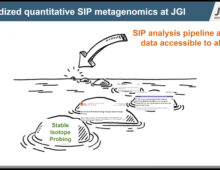 The JGI offers metagenome quantitative stable isotope probing (Metagenome – qSIP) capabilities to investigate metabolic activity of metagenome-assembled genomes (MAGs). [Read More]
The JGI offers metagenome quantitative stable isotope probing (Metagenome – qSIP) capabilities to investigate metabolic activity of metagenome-assembled genomes (MAGs). [Read More]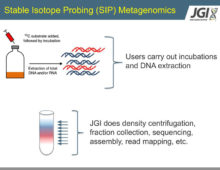 At the JGI and EMSL, various tools leverage stable isotopes to measure carbon and nutrient flux, and identify microbes assimilating labeled compounds. [Read More]
At the JGI and EMSL, various tools leverage stable isotopes to measure carbon and nutrient flux, and identify microbes assimilating labeled compounds. [Read More]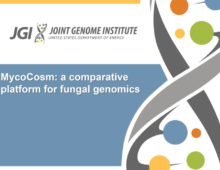 How researchers can utilize the JGI data portal MycoCosm for conducting fungal genomics analyses. [Read More]
How researchers can utilize the JGI data portal MycoCosm for conducting fungal genomics analyses. [Read More]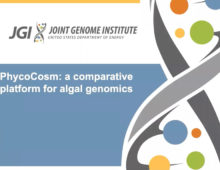 An introduction to the JGI data portal PhycoCosm, and how researchers can harness it for exploring algal genomes and genes. [Read More]
An introduction to the JGI data portal PhycoCosm, and how researchers can harness it for exploring algal genomes and genes. [Read More]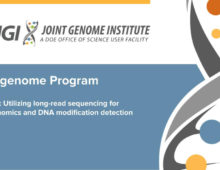 How the JGI employs single-molecule, long-read DNA sequences to aid with genome assembly and transcriptome analysis of microbial, fungal, and plant research projects. These long-reads have also been applied to DNA methylation analysis as well as improving metagenome assemblies. [Read More]
How the JGI employs single-molecule, long-read DNA sequences to aid with genome assembly and transcriptome analysis of microbial, fungal, and plant research projects. These long-reads have also been applied to DNA methylation analysis as well as improving metagenome assemblies. [Read More]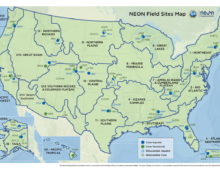 Through the collaborative science call (FICUS) between the JGI and EMSL, successful applicants can also access resources at the National Ecological Observatory Network (NEON). [Read More]
Through the collaborative science call (FICUS) between the JGI and EMSL, successful applicants can also access resources at the National Ecological Observatory Network (NEON). [Read More]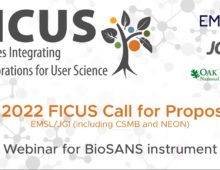 A webinar on how researchers could tap the capabilities of the Biological Small-Angle Neutron Scattering (BioSANS) when applying to the EMSL-JGI FICUS call for proposals. [Read More]
A webinar on how researchers could tap the capabilities of the Biological Small-Angle Neutron Scattering (BioSANS) when applying to the EMSL-JGI FICUS call for proposals. [Read More]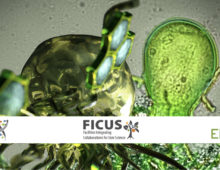 JGI and the Environmental Molecular Sciences Laboratory (EMSL) co-hosted an engagement webinar on “Accessing Resources at Multiple DOE User Facilities with a Single Proposal.” [Read More]
JGI and the Environmental Molecular Sciences Laboratory (EMSL) co-hosted an engagement webinar on “Accessing Resources at Multiple DOE User Facilities with a Single Proposal.” [Read More]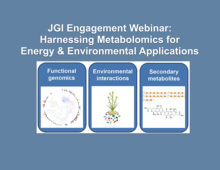 The JGI Engagement Webinar held November 5, 2020 (video available with captions) spotlighted the metabolomic analysis capability available through the Community Science Program (CSP). [Read More]
The JGI Engagement Webinar held November 5, 2020 (video available with captions) spotlighted the metabolomic analysis capability available through the Community Science Program (CSP). [Read More]